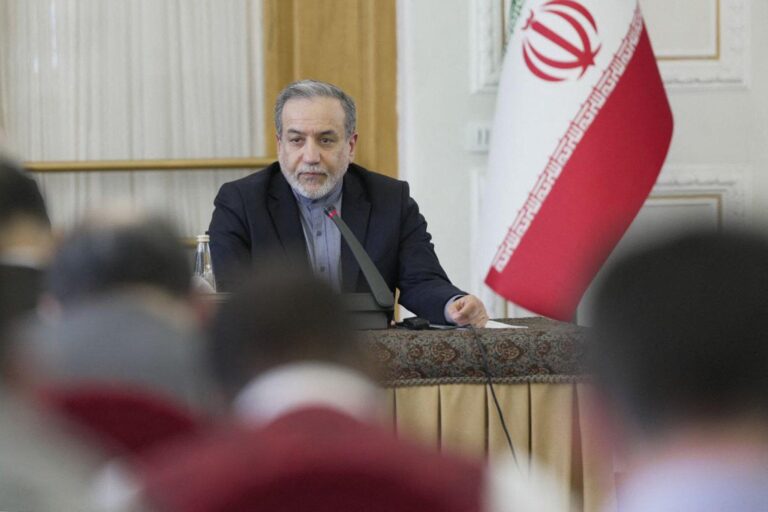Germany, France, and the United Kingdom have intensified efforts to broker a diplomatic resolution amid escalating tensions between Israel and Iran. As regional instability threatens to spiral further, the three European powers are calling for restraint and dialogue to prevent confrontation. Their coordinated push underscores growing international concern over developments in the Middle East and reflects a broader commitment to stability through diplomacy.
Germany France and UK push for renewed diplomatic efforts amid Israel Iran tensions
In response to escalating tensions between Israel and Iran, Germany, France, and the United Kingdom have jointly initiated a push for renewed dialogue and diplomatic engagement. The trio emphasizes the urgent need to de-escalate military confrontations and avoid further destabilization in the Middle East. They advocate for multilateral negotiations, urging both parties to return to the negotiating table with commitments to transparency and conflict resolution. Key diplomatic efforts proposed include:
- Immediate ceasefire calls
- Resumption of direct or mediated talks
- Strengthened international monitoring mechanisms
- Enhanced communication channels via EU-led frameworks
These Western powers also underline the importance of addressing underlying regional issues that fuel the conflict, including nuclear proliferation concerns and proxy engagements. Their collective approach reflects a strategic preference for diplomacy over military escalation, with an aim to foster long-term stability. Below is a concise overview of each country’s diplomatic stance and recent actions:
| Country | Recent Initiative | Focus Area |
|---|---|---|
| Germany | Facilitated indirect talks | Nuclear deal framework |
| France | Engaged regional partners | Conflict de-escalation |
| United Kingdom | Sanctions review & dialogue promotion | Security guarantees |
Challenges and opportunities in mediating the Middle East conflict
The diplomatic endeavors led by Germany, France, and the United Kingdom to ease tensions between Israel and Iran face a complex web of geopolitical challenges. Deep-rooted distrust, historical grievances, and conflicting regional interests impede straightforward negotiation paths. Additionally, the involvement of various state and non-state actors further complicates the mediation process, demanding nuanced engagement strategies that go beyond traditional bilateral talks. These European countries must navigate not only the volatility of Middle Eastern alliances but also the intricate influence of global powers on the conflict.
Key challenges include:
- Establishing reliable communication channels amid mutual hostility
- Balancing the competing security concerns of Israel and Iran
- Addressing external influences from the US, Russia, and regional proxies
Despite these obstacles, there are significant opportunities for progress. The shared interest of regional stability creates openings for confidence-building measures and limited cooperative initiatives. Additionally, Europe’s relative neutrality positions it as a credible mediator capable of fostering dialogue. Strategically leveraging economic incentives, humanitarian aid, and multi-track diplomacy could pave the way for incremental breakthroughs toward de-escalation.
| Opportunities | Potential Impact |
|---|---|
| Economic collaboration initiatives | Improved trust and mutual benefit |
| Humanitarian projects | Reduction in civilian suffering, increased goodwill |
| Track II diplomacy | Enhanced informal dialogue channels |
Recommendations for strengthening international dialogue and preventing escalation
To defuse tensions and avoid further escalation, it is essential that all involved parties commit to sustained, transparent communication channels. This should include increased diplomatic engagement facilitated by neutral mediators, aiming to build mutual trust and clarify each side’s security concerns. Key measures include:
- Regular high-level meetings to address misunderstandings before they intensify
- Establishment of crisis hotlines enabling direct, real-time dialogue between military and political leaders
- Confidence-building initiatives such as information sharing on military activities to prevent accidental confrontations
Additionally, international actors such as Germany, France, and the UK can play a pivotal role by coordinating a unified approach that balances the necessity of security guarantees with diplomatic openness. This includes leveraging existing frameworks and proposing new mechanisms for dialogue, exemplified in the following strategic priorities:
| Priority | Description |
|---|---|
| Multilateral Engagement | Involve regional and global powers in dialogue to disperse unilateral pressures |
| De-escalation Agreements | Commit to agreed pauses in provocative actions and military exercises |
| Humanitarian Channels | Maintain and expand frameworks for civilian aid despite political tensions |
| Transparent Monitoring | Employ international observers to oversee compliance with negotiated terms |
Concluding Remarks
As tensions between Israel and Iran continue to escalate, the diplomatic efforts led by Germany, France, and the United Kingdom underscore a critical international push to de-escalate the situation through dialogue rather than conflict. While the path forward remains uncertain, these European powers emphasize the importance of measured negotiation in preventing further instability in the Middle East. The coming weeks will be pivotal in determining whether diplomacy can prevail amid longstanding regional hostilities.




